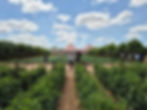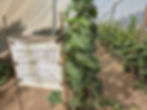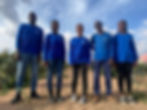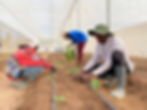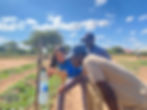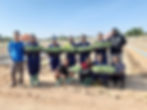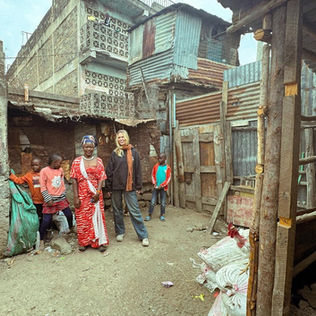Making an Impact
Water 4 Mercy provides sustainable solutions for clean water and agriculture in Tanzania, transforming lives and communities.
AITeC
Water 4 Mercy is transforming the cycle of poverty into ‘Cycles of Success’, by implementing AITeC (Agricultural Innovation and Technology Centers) with Don Bosco Technical Institutes of Africa to sustain through education the changes that Water 4 Mercy is bringing to numerous villages. Water 4 Mercy is sharing Israel’s advanced and innovative knowledge and "Teaching Their Teachers To Teach", ensuring longterm self-sustainability throughout Africa.

What makes Water 4 Mercy the most successful organization established to help the suffering people of the Sub-Sahara region?
Sustainability through Education!
Focusing on the agricultural and water sectors, our Agricultural Innovation and Technology Centers - AITeC - complement Don Bosco Technical Institute’s hands-on vocational curriculum to teach innovative solutions for knowledge development in areas of nutrition sensitivity, climate resilience, income generation, teacher training and youth empowerment.
Students alongside local farmers and extension workers/agents learn self-sustainable best-practices in horticulture and animal husbandry from skilled agronomists for the purpose of improving their undernourished communities' health by “Eating The Rainbow’.
A game-changing agricultural program, AITeC ensures food and nutritional security - it's Revolutionary! In transforming the cycle of poverty into ‘Cycles of Success’, we developed and are implementing Agricultural Innovation & Technology Centers (AITeCs) to sustain, through education, the changes that Water 4 Mercy is bringing to numerous villages

AITeC sustains the advancement opportunities provided by Water 4 Mercy for the villages we serve through educational and technological advancement and teacher training. Education is the lynchpin of dynamic life-changing opportunity that completely changes lives.
The intent of AITeC is permanent self-sustainability throughout Africa by ‘Teaching Their Teachers to Teach’ and training a new generation of agronomists and growers. We are bringing desert-tested distinguished solar, water and agricultural technology and expertise and sharing knowledge via the largest Catholic skills training school in the world.
AITeC is the much-needed FULCRUM of CHANGE for Africa's agriculture to be built on a truly solid foundation. Learn more about AITeC.
Impacting Lives for Generations with Water, Food, and Hope
Mwinyi Village
Project Type
Water
People Impacted
4,017
Projected Completed Date
10/01/2018
Mwinyi Village is located in Chamwino District, 50 kilometers away from Dodoma, the capital city of Tanzania. It is home to 5,000 people who used to rely completely on natural wells for their daily water consumption. During the rainy season, women and children walk up to ten kilometers daily to fill their jerry-cans with water. In the dry season, the situation becomes more severe, at times, finding water can take one full day. The water sources used are contaminated, shared with livestock and cause illnesses including Cholera and diarrhea. In April 2019, Innovation: Africa in partnership with Water 4 Mercy, installed a solar water pumping system a Mwiyni Village. In a remarkable donor trip, the taps were officially turned on. For the first time, water ran throughout the village. iA established a water tower with a 10,000-liter water tank and 16 taps distributed throughout the village, the community and two surrounding villages, totaling 5,000 people, now have access to safe water. As a result, people are no longer sick, they are able to wash their hands and drink clean water. Students’ school attendance has greatly increased; people have built brick homes, and established gardens. In December 2019, on a trip with Nermine Khouzam Rubin, Founder & CEO of Water 4 Mercy and CultivAid, iA and Water 4 Mercy installed Drip Irrigation at Mwiyni Village using the solar water pumping system. There has been an improved standard of living and economic situation with the community members selling bricks and even opening a restaurant. Today, the people of Mwinyi Village are living healthier lives.


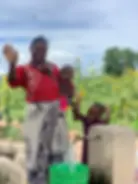

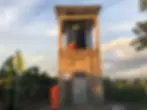
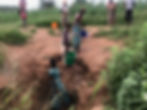
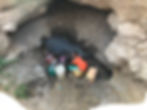







Mwinyi Village Drip Irrigation
Project Type
Drip
People Impacted
4,000
Projected Completed Date
12/15/2019
Mwinyi Village, home to 4,000 people, is located in the Chamwino District, 50 kilometers away from Dodoma. Since the installation of the solar water pumping system in April 2019, people’s health has tremendously improved and villagers have been involved in many economic activities, such as the creation of vegetable gardens. In December 2019, Innovation: Africa in partnership with Water 4 Mercy installed Drip Irrigation at Mwinyi Village. Nermine Khouzam Rubin, Founder & CEO of Water 4 Mercy, together with the technical support from CultivAid, was present as the newly established Drip Irrigation Farm was initiated. The community received seedlings for onions, tomatoes, sweet peppers, and okra along with one year of comprehensive training by a team of professional agronomists. The lead farmers at Mwiny Village’s farm are refining their skills in crop nutrition, soil and nursery management, pest and disease control, as well as harvesting methods. Today, Mwinyi Village is benefiting from access to safe and clean water as well as food security and economic independence, further improving their health and well-being.

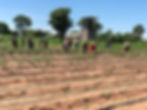

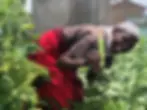








Ndebwe Village
Project Type
Water
People Impacted
5,459
Projected Completed Date
04/19/2019
Ndebwe Village, located 51 kilometers from Dodoma, is home to 4,600 people. This community relies on local natural wells as their only source of water. During the rainy season, the women and children spend up to two hours waiting in line to fill their jerry cans with water. Moreover, the community members are consuming this water, knowing that it is causing stomach diseases. In the dry season, the wells run dry, forcing the women and children to go in search of water. In April 2019, Innovation: Africa constructed a water tower with a 10,000-liter water tank and 28 taps throughout the village. iA brought taps to the primary school, secondary school, and health center in Huzi Village. Today, with access to clean water for drinking, cooking, and bathing as well as for the health center and students, hygiene and health are tremendously improving.
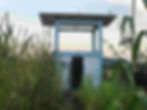

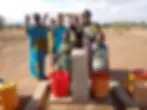
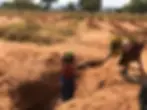


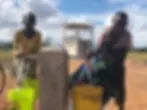
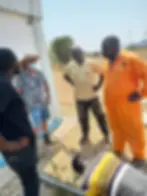










Huzi Village
Project Type
Water
People Impacted
4,323
Projected Completed Date
09/07/2020
Huzi Village is home to 4,323 people. It is remotely situated 89 kilometers away from the capital city of Tanzania in Chamwino District. The community’s access to water is extremely challenging, women spend many hours in search of water. Often, the community is forced to consume contaminated water that causes water-borne illnesses and chronic diarrhea. In August 2020, the lives of those from Huzi Village changed forever when Innovation: Africa, in partnership with Water 4 Mercy, installed a solar-water pumping system, bringing clean water to the entire community today, and for generations to come! Innovation: Africa constructed a water tower with a 10,000-liter water tank and 28 taps throughout the village. iA brought taps to the primary school, secondary school, and health center in Huzi Village. Today, with access to clean water for drinking, cooking, bathing as well as for the health center and students, hygiene and health is tremendously improving.
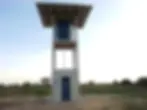

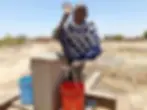

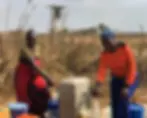
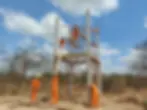










Maseya Village
Project Type
Water
People Impacted
4,275
Projected Completed Date
12/07/2020
Maseya Village is home to 3,758 people. It is remotely situated, 60 kilometers away from the capital city of Tanzania, in the district of Chamwino. The community’s access to water is extremely challenging. Every day, women walk to a dry riverbed where they dig into the ground in search of water, women wait over 2 hours to fetch this water. In the dry season, the situation worsens as water becomes even more scarce. Women are then forced to walk over 5 kilometers in search of water. This water is extremely contaminated as it is shared with cattle and, as a result, water-borne illnesses are prevalent within the community. Many people suffer from stomach diseases, diarrhea, and typhoid. In November 2020, this difficult situation came to an end when Innovation: Africa, in partnership with Water 4 Mercy, installed a solar water-pumping system at Maseya Village. A 10,000-liter water tank was raised and connected to 22 taps that are distributed throughout the village. A tap was also brought to the local primary school, ensuring that the 475 students have access to safe drinking water while at school. With access to clean water for drinking, cooking, and bathing, the community’s health and hygiene is tremendously improving.
















Mapinduzi Village
Project Type
Water
People Impacted
4,257
Projected Completed Date
11/19/2020
Mapinduzi Village, located 60 kilometers from Dodoma, the capital city of Tanzania, is home to 4,257 people. Villagers have no access to clean water and rely on hand-dug wells as their only water source. Every day, women wake up at 3 a.m and walk up to five kilometers in order to reach water. In the dry season, the water sources completely dry up and the women have no choice but to climb rocky and steep mountains for several hours to fetch water. The landscape is extremely dangerous, and sadly, due to rock falls, women and children have died while on their way to collect water. Moreover, this water is extremely contaminated and unsafe for drinking; leading to many cases of stomach diseases, diarrhea, and typhoid. In November 2020, the lives of those from Mapinduzi Village changed forever when Innovation: Africa, in partnership with Peter & Paula Vosotas and Water 4 Mercy, installed a solar-water pumping system, bringing clean water to the entire community! Innovation: Africa constructed a water tower with a 10,000-liter water tank and 20 taps throughout the village, including one tap at the local primary school to ensure school children have access to safe water. Without the need to spend all day fetching water, women have more time to take care of their households and engage in income-generating activities. Moreover, the daily risks of contracting water-borne illnesses have been eliminated. Mapinduzi Village now has safe water, improving their health and hygiene for generations to come!
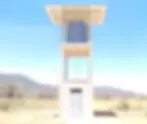

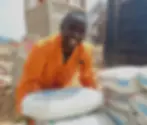
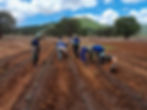
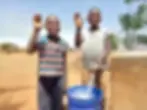
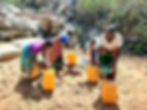
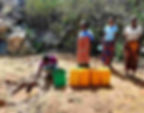
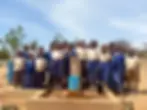








Mazengo-Handali Village
Project Type
Water
People Impacted
3,752
Projected Completed Date
04/22/2021
Mazengo-Handali Village is remotely located in the Chamwino District, Tanzania, and is home to 3,752 people. The entire community is living without access to clean water. Women and young girls walk 4 kilometers, multiple times a day, to collect water from a contaminated open well. The water source poses extreme dangers with the threat of attacks from wild animals and rape. Water for this community is scarce, in the dry season; the community waits for hours for the water to replenish. Consuming the water causes waterborne illnesses, including diarrhea, Cholera and Typhoid, to be prevalent in the community. In April 2021, 3,752 lives were changed when Innovation: Africa, with the generous support from Roger & Sharon Eschenroeder, Tom Snitzer and Water 4 Mercy, installed a solar water pumping system in Mazengo-Handali Village. Two water towers were built, housing a 10,000-liter water tank and distributing water to 14 taps throughout the village. Access to clean water is revolutionizing Mazengo-Handali Village; the daily risks of contracting waterborne diseases have been eliminated, children have returned to school to receive an education and people are seeing their health and hygiene improve. The well-being and livelihood of the village has been forever transformed.
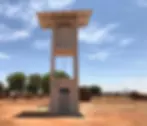
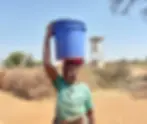
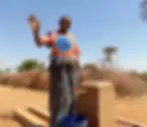
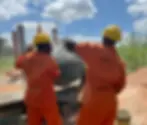
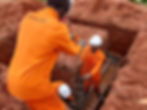

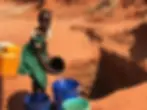









Mandela Water Project
Project Type
Water
People Impacted
4,072
Projected Completed Date
07/05/2021
Mandela Village, located in Chamwino, Tanzania, is home to 4,072 people with only open wells as a water source. Although the water is contaminated by animal waste, mud, frogs, and poisonous snakes, the community uses it for daily consumption. As a result, hundreds of villagers suffer from water-borne illnesses such as typhoid (259), amoeba (184), and stomach pains (406). Women and children walk long distances, multiple times a day, to collect water. Water is scarce as villagers wait up to an hour for water to replenish. Fetching water is dangerous as many women have suffered from poisonous snake bites. In April 2021 thanks to the generous support of Water4Mercy, the lives of those from Mandela Village changed forever when Innovation: Africa installed a solar water pumping system. Access to clean water is revolutionizing Mandela Village; the daily risks of contracting waterborne diseases have been eliminated and members of the village are now seeing their health, hygiene, and safety improve. The well-being and livelihood of people from Mandela Village have been forever transformed.

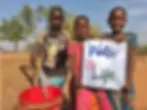

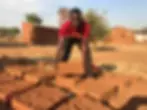












Manzilanzi Village
Project Type
Water
People Impacted
1,895
Projected Completed Date
09/30/2022
Manzilanzi Village is home to 1,895 people and remotely located in Chamwino, Tanzania. The entire community was living without access to clean water. Women and young girls walked 4.0km multiple times a day to collect water from a contaminated small open well. The water source runs dry in the dry season, forcing the community to wait for hours or search for other water sources. Consuming water from existing water sources causes waterborne illnesses including amoeba. With generous support from Water4Mercy, on September 30, 2022, Innovation: Africa installed a solar water pumping system in Manzilanzi Village, significantly improving the lives of Manzilanzi Village’s population. Children have returned to school to receive an education. Women are growing gardens, providing food security, and cooking safely. Families are washing their hands, improving general sanitation, and thus becoming healthier. We now see a community developing, growing, and enjoying increased opportunity.
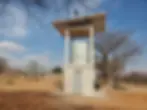

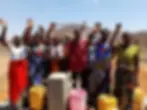


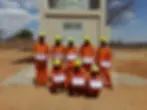
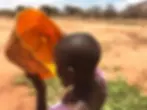
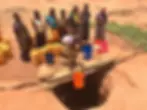








Mabalangu Village
Project Type
Water
People Impacted
1,637
Projected Completed Date
09/30/2022
Mabalangu Village, a home to 1,637 people and remotely located in Chamwino, Tanzania. The entire community was living without access to clean water. Women and young girls walked 3km multiple times a day to collect water from a contaminated local open well scooped on the river stream. The water source runs dry in the dry season, forcing the community to wait for hours or search for other water sources. Consuming water from existing water sources causes waterborne illnesses including diarrhea. With generous support from Water4Mercy, on September 30, 2022, Innovation: Africa installed a solar water pumping system in Mabalangu Village, significantly improving the lives of Mabalangu Village’s population. Children have returned to school to receive an education. Women are growing gardens, providing food security and cooking safely. Families are washing their hands, improving general sanitation and thus becoming healthier. We now see a community developing, growing and enjoying increased opportunity.
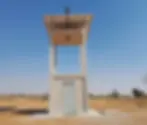
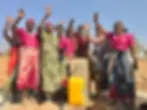


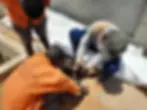
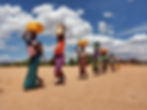
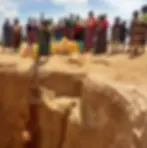







Mugu Village
Project Type
Water
People Impacted
2,109
Projected Completed Date
12/31/2022
Mugu Village is home to 2,109 people and is remotely located in Chamwino, Tanzania. The entire community was living without access to clean water. Women and young girls walked 1km multiple times a day to collect water from a contaminated open local well. The water source runs dry in the dry season, forcing the community to wait for hours or search for other water sources. Consuming the water from the existing water sources causes waterborne illnesses, including typhoid. With generous support from Water4Mercy, on December 31, 2022, Innovation: Africa installed a solar water pumping system in Mugu Village, significantly improving the lives of Mugu Village’s population. Children have returned to school to receive an education. Women are growing gardens, providing food security, and cooking safely. Families are washing their hands, improving general sanitation, and thus becoming healthier. We now see a community developing, growing, and enjoying increased opportunity.
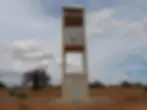
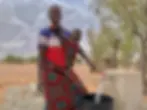
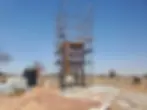


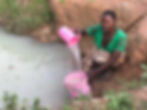
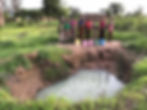







Malichela Village
Project Type
Water
People Impacted
1,640
Projected Completed Date
12/25/2022
Malichela Village, home to 1,864 people and remotely located in Chamwino, Tanzania, The entire community was living without access to clean water. Women and young girls walked 3km multiple times a day to collect water from contaminated, small open wells. The water source runs dry in the dry season, forcing the community to wait for hours or search for other water sources. Consuming the water from the existing water sources causes waterborne illnesses, including typhoid . With the generous support from Water4Mercy, Diana & Kerry Helinger, on December 25, 2022, Innovation: Africa installed a solar water pumping system in Malichela Village, significantly improving the lives of Malichela Village’s population. Children have returned to school to receive an education. Women are growing gardens, providing food security, and cooking safely. Families are washing their hands, improving general sanitation, and thus becoming healthier. We now see a community developing, growing, and enjoying increased opportunity.

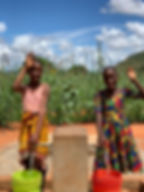
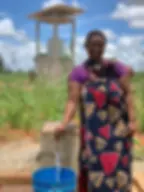
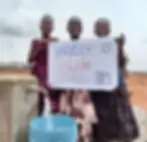
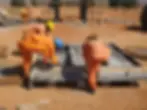
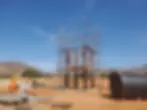
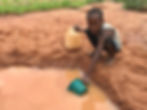
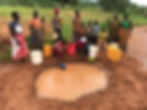








Iyoyo Village
Project Type
Water
People Impacted
3,229
Projected Completed Date
06/25/2023
Iyoyo Village, with 3,229 residents in remote Chamwino, Tanzania, lacked access to clean water. Women and girls walked 2 km daily to contaminated open wells, leading to waterborne illnesses. Thanks to Water 4 Mercy's support in July 2023, Innovation: Africa installed a solar water pumping system. This transformed Iyoyo Village: children returned to school, women cultivated gardens for food security and safe cooking, and families improved hygiene. Now, the community thrives with increased opportunities.


















Ausia Village
Project Type
Water
People Impacted
3,021
Projected Completed Date
10/31/2023
I am delighted to share that the official handover of the water project at Ausia Village recently took place, and thanks to you, the 3,021 community members now have safe and clean water for the first time in their lives! The community members were truly overjoyed, and the trainees who participated in the construction process were proud of their contribution. Their newfound skills will not only help them with future employment opportunities but will also help with the long-term sustainability of the water project, as we have now ensured that members of this village will know how to maintain the system and conduct any small repairs that may be required in the years to come.

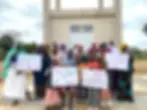
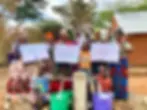


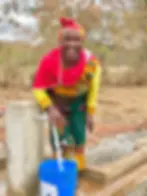
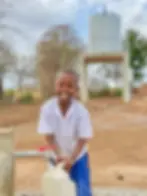







Damai Village
Project Type
Water
People Impacted
4,443
Projected Completed Date
10/31/2023
I am delighted to share that the official handover of the water project at Damai Village recently took place, and thanks to you, the 4,443 community members now have safe and clean water for the first time in their lives! The community members were truly overjoyed, and the trainees who participated in the construction process were proud of their contribution. Their newfound skills will not only help them with future employment opportunities but will also help with the long-term sustainability of the water project, as we have now ensured that members of this village will know how to maintain the system and conduct any small repairs that may be required in the years to come.














Elshadai Kallamino AITeC Farm – Mekelle
Project Type
Water
People Impacted
4,443
Projected Completed Date
09/07/2020
Building on the success of Elshadai’s Wukro site, the Elshadai AITeC Farm at Kallamino, adjacent to the TDA-Kallamino farm near Mekelle, serves as a powerful extension of Water 4 Mercy’s mission to transform communities through sustainable agriculture and education. Located within the Elshadai Children’s Village Kallamino (ECV-K), this Agricultural Innovation and Technology Center supports both the nutritional and economic needs of the village’s children while driving regional agricultural development. In partnership with CultivAid and the Tigray Development Association (TDA), the site exemplifies how agricultural innovation and capacity-building can go hand in hand to empower the next generation of agronomists and food producers.





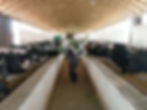






Chiuta Village
Project Type
Water
People Impacted
3,560
Projected Completed Date
04/19/2025
In Chiuta Village, located in Zambia’s Sinda District, 3,560 community members still rely on unsafe water for their daily needs. Women and girls walk nearly half a mile each day to collect limited, contaminated water—putting their health at risk and limiting their time for education and work. Thanks to the generosity of St. James Catholic Church, Deacon James, Deacon Dave, and Water 4 Mercy, a major milestone was reached on March 10, 2025, when successful drilling yielded 1.00 liters of clean water per second. Water testing confirmed it is safe for human consumption, and the borehole has been sealed to prevent contamination. Engineers are now designing the solar water system, mapping optimal tower and tap locations to serve the entire community. With additional funding, this life-saving project can be completed—bringing clean water, improved health, and renewed opportunity to Chiuta Village. Support is still needed to bring this vision fully to life.
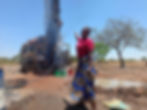
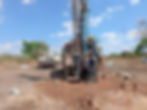


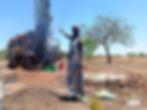

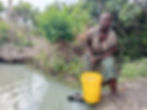







Tigray Agri-Cluster Program
Project Type
Water
People Impacted
4,323
Projected Completed Date
09/07/2020
Launched in 2023, the Tigray Agri-Cluster Program is a transformative agricultural initiative led by CultivAid, with the support of Water 4 Mercy and a network of regional partners. This innovative program is revitalizing smallholder vegetable production across Tigray by connecting farmers directly to high-quality inputs, advanced techniques, and continuous training—building a resilient, market-based agricultural system from the ground up. At its core, the program empowers farmer clusters through hands-on education, access to subsidized seedlings, and strategic extension services. By organizing growers into cooperative clusters and linking them to demonstration sites and expert guidance, the Agri-Cluster model drives improved yields, stronger supply chains, and sustainable livelihoods.
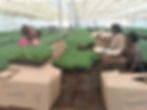
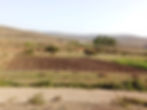
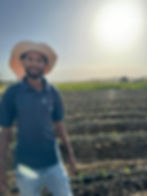
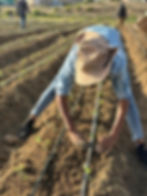

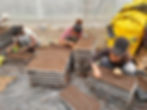






Khaila Village
Project Type
Water
People Impacted
5,400
Projected Completed Date
04/19/2025
In Khaila Village, located in Zambia’s Sinda District, 5,400 residents are still relying on unsafe water sources for daily use. Women and girls walk an average of 1.5 kilometers each day to collect water that is not only insufficient for basic needs like cooking, washing, and growing food, but also poses serious health risks due to contamination. Thanks to the incredible generosity of Roger Rolfe and the entire Rolfe Family, successful drilling was completed, yielding 1.6 liters of clean water per second. Laboratory testing confirmed the water is safe for human consumption, and the borehole has now been sealed to prevent contamination. Engineers are actively designing the solar water system, planning the placement of the water tower and community taps to maximize access. With continued support, this project will soon bring life-changing clean water to Khaila Village—restoring health, dignity, and opportunity. Additional funding is still needed to complete the next vital phases.
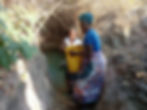

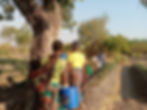
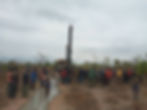
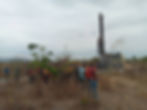
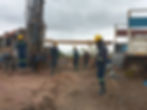
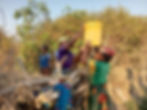
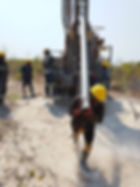








Zemba Village
Project Type
Water
People Impacted
3,405
Projected Completed Date
04/19/2025
In Zemba Village, located in Zambia’s Katete region, life is on the verge of transformation for 3,405 residents—thanks to the generosity of Roger & Sharon Eschenroeder, Tom Snitzer, and Water 4 Mercy. Following successful drilling, construction of the solar-powered water system is now well underway. The foundation, ground slab, structural columns, and first slab have all been completed, bringing renewed hope to a community that has long struggled without safe, reliable water. The excitement in the village is palpable, as families look forward to clean water that will ease daily burdens, improve health, and open doors to education and opportunity. While the system is still under construction, the people of Zemba Village are already filled with anticipation and gratitude, knowing that this project will change their lives for generations to come.
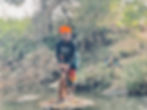
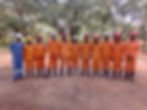
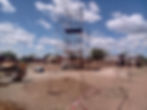

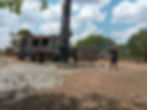
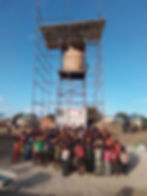
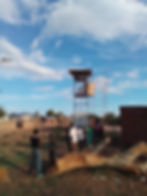
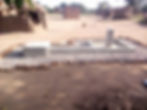
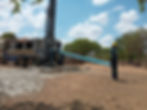
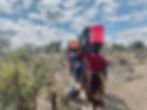
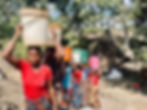











Misrey Village
Project Type
Water
People Impacted
3,048
Projected Completed Date
12/31/2024
On April 25, 2024, Misrey Village in Tanzania celebrated the installation of a solar-powered water system, made possible through the generous support of Roger & Sharon Eschenroeder, Tom Snitzer, and Water 4 Mercy. The system now delivers 2.6 liters of clean water per second through 4.183 kilometers of piping, reaching 7 community taps and providing safe water to 3,380 residents. Before this transformation, women and children walked up to 11 kilometers during dry seasons to fetch unsafe water shared with livestock, and even the local school lacked water access, forcing students to walk 3 kilometers before beginning classes.
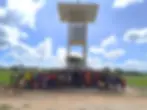
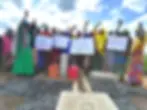

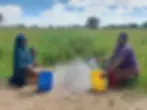




Serya Village
Project Type
Water
People Impacted
3,600
Projected Completed Date
04/20/2025
On April 20, 2023, Serya Village in remote Kondoa, Tanzania, celebrated the installation of a solar-powered water system, implemented by Innovation: Africa with generous support from Water 4 Mercy, Roger & Sharon Eschenroeder, and Tom Snitzer. For years, the village’s 3,600 residents depended on a contaminated water source 3 kilometers away, requiring women and girls to spend hours each day walking for water. Since the installation, daily life has dramatically improved—children are back in school, women are cultivating home gardens, and families enjoy better hygiene and health. Clean water has brought renewed hope, dignity, and opportunity, and Serya Village is now thriving on a foundation of lasting transformation.
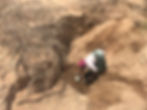
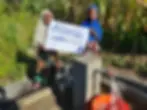
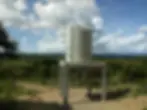

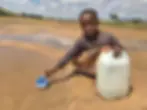





Puhi Village
Project Type
Water
People Impacted
3,110
Projected Completed Date
11/13/2024
On November 13, 2024, Puhi Village celebrated the arrival of clean water with the installation of a solar-powered water system, generously funded by the Kirsh Foundation, Water 4 Mercy, and Amy Belanger. The system now delivers 1.03 liters of water per second through 3,980 meters of piping, reaching 8 taps and serving 3,110 residents. Previously, women and girls walked over 2.5 kilometers daily to collect unsafe water, leading to poor health and lost educational time. With clean water now flowing, Puhi Village is thriving—health has improved, children are in school, and families have time to farm and grow. A brighter, more dignified future has begun.
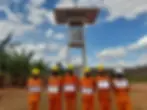
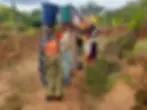
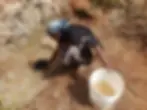

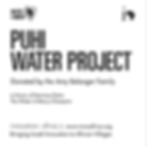





Humai Village
Project Type
Water
People Impacted
3,048
Projected Completed Date
12/31/2024
On December 31, 2024, the residents of Humai Village in Tanzania celebrated a transformative milestone with the completion of a solar-powered water system, made possible through the generous support of Roger & Sharon Eschenroeder, Tom Snitzer, and Water 4 Mercy. This life-changing project now provides clean, reliable water to 3,048 people, dramatically improving health, education, and economic opportunity across the community. Before the installation, families endured long walks to unsafe water sources that jeopardized their well-being. Today, with water flowing within reach, children attend school more regularly, women have time for farming and other productive activities, and the entire village is thriving. Humai Village now stands on a foundation of dignity, health, and hope for the future.
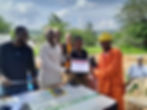
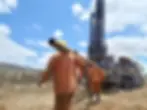
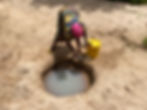

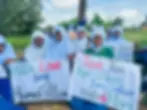
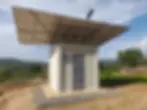

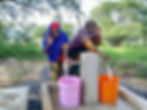
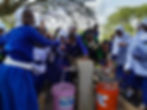









Kwa Madebe Village
Project Type
Water
People Impacted
3.017
Projected Completed Date
03/01/2025
In Kwa Madebe Village, located in Tanzania’s Kondoa District, an exciting transformation is underway for the 3,017 residents who have long struggled without access to clean water. Thanks to the incredible support of Beth and the Clearwater Central Catholic High School Water 4 Mercy Service Chapter, a solar-powered water system is now in development. As of March 2025, construction is progressing well—successful drilling has been completed, and major structural work, including trenching, the foundation, ground and first floor columns, and the load-bearing slab, is in place. The community is overjoyed and hopeful, eagerly anticipating the day when safe water will flow through the village. Once complete, this project will improve health, increase school attendance, and open the door to farming and economic growth. Kwa Madebe is on the path to a brighter, healthier, and more empowered future.
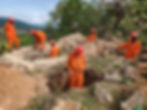

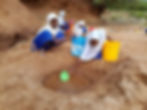
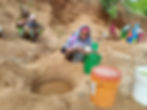
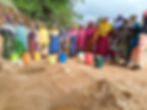

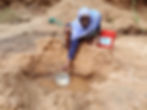
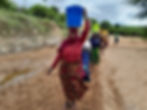
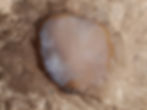















Boma Ya Ng'Ombe Village
Project Type
Water
People Impacted
2,873
Projected Completed Date
05/21/2024
On May 21, 2024, the installation of a solar-powered water pump brought life-changing transformation to Boma Ya Ng'Ombe Village in Tanzania’s Kondoa District. Made possible by the generosity of Roger & Sharon Eschenroeder, Tom Snitzer, and Water 4 Mercy, the system now delivers 2.44 liters of clean water per second, serving 2,873 residents. Once burdened by limited and unsafe water access, the community now enjoys improved health, better hygiene, increased school attendance, and expanded economic opportunity. With water flowing reliably throughout the village, Boma Ya Ng'Ombe is thriving—on a path of growth, dignity, and lasting hope.
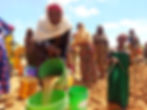
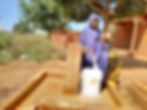
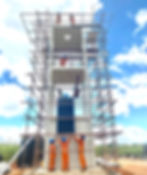
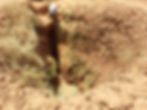

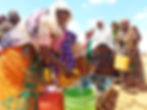
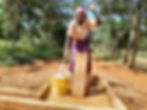
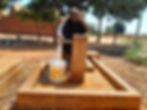
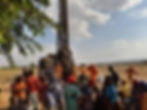
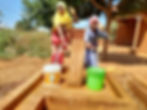
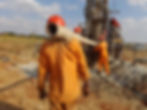
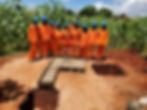
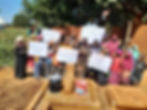
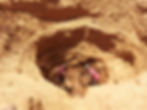
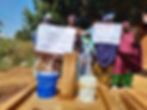















Elshadai Wukro AITeC Farm
Project Type
Water
People Impacted
4,323
Projected Completed Date
09/07/2020
Located 45 kilometers from Mekelle, the regional capital of Tigray in northern Ethiopia, the Elshadai AITeC Farm is a shining example of how agriculture, education, and innovation can come together to transform communities. Established within the Elshadai Children’s Village in Wukro (ECV-W)—a safe haven founded in 1989 to care for children affected by civil war—the farm plays a vital role in supporting nearly 200 children through both nutrition and education. Graduates from the program have gone on to become health professionals, engineers, teachers, and entrepreneurs, illustrating the powerful ripple effect of self-sustaining development.


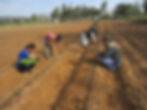











Don Bosco AITeC Embu
Project Type
Water
People Impacted
4,323
Projected Completed Date
09/07/2020
Established in 2022, Don Bosco AITeC Embu is a flagship Agricultural Innovation and Technology Center located at the Don Bosco Technical Institute in Embu, Kenya. This center was developed through the vision and initiative of Water 4 Mercy, in collaboration with the Israeli Embassy in Kenya, as part of our mission to create Cycles of Success through sustainable agriculture and education. A Model for Agricultural Education and Innovation The 4-acre TDR site (Training, Demonstration & Research) serves as the backbone of Don Bosco Embu’s practical agricultural training program. Equipped with modern Israeli agricultural technologies, the site features:
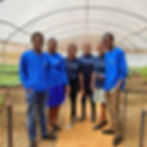

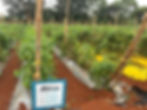


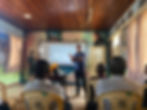

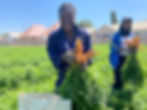








Sisters of Carmelite – AITeC Satellite Farm, Nairobi
Project Type
Water
People Impacted
4,323
Projected Completed Date
09/07/2020
As a satellite site of the Don Bosco AITeC Embu Farm, the Sisters of Carmelite project at Mt. Carmel Convent on the northwestern outskirts of Nairobi is bringing innovative agricultural practices to a small-scale, community-based setting. In partnership with Water 4 Mercy, CultivAid, and the Sisters of Carmelite, this initiative is transforming a 0.9-acre farm into a productive and sustainable model of modern agriculture. The site features greenhouse cultivation, open-field vegetable farming, fruit tree planting, and advanced irrigation systems—all designed to maximize productivity, profitability, and sustainability. This peri-urban farm serves both as a food source for the local market and a training ground for replicating successful techniques in similar environments.
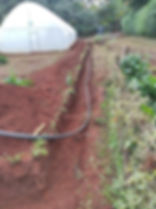
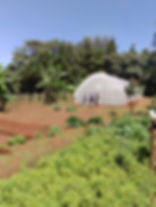
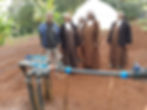
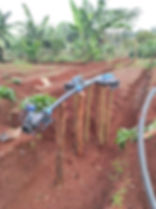




Agadir Agricultural Diplomacy Project
Project Type
Water
People Impacted
4,323
Projected Completed Date
09/07/2020
Water 4 Mercy, in strategic partnership with CultivAid and the Agadir Horticultural Complex (AHC), is proud to launch a groundbreaking initiative in Agadir, Morocco—a region central to Moroccan agriculture and known for its openness to innovation. This collaboration lays the foundation for a new model of regional cooperation rooted in knowledge exchange, hands-on training, and applied agricultural innovation. As an expression of Agricultural Diplomacy, the project is inspired by the spirit of the Abraham Accords, which seek to normalize relations and promote prosperity between Israel and Muslim-Arab nations. Our shared vision is to build bridges of friendship and professional collaboration across the Middle East and North Africa, using agriculture and water technologies as tools for peace and progress. By partnering with AHC, a leading institution in agricultural engineering and water studies, we are creating a vibrant hub for education, research, and regional advancement. This initiative represents a powerful step toward mutual growth and long-term impact—uniting countries, communities, and individuals around a common goal: sustainable agriculture for a better future.
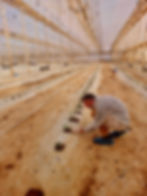
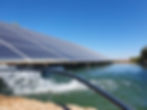
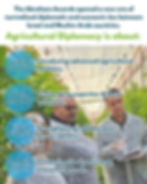
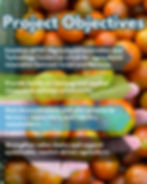
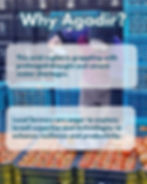
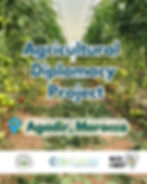
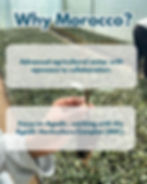







Don Bosco AITeC Farm – Dodoma
Project Type
Water
People Impacted
4,323
Projected Completed Date
09/07/2020
Established in 2020 at the Don Bosco Technical Institute in Dodoma, the AITeC Dodoma site is a thriving hub of agricultural education, innovation, and regional impact. Developed through a strategic partnership between Water 4 Mercy and Don Bosco Tanzania, this 6-acre (2.5-hectare) Agricultural Innovation and Technology Center provides hands-on training, cutting-edge research, and practical demonstrations of Israeli farming technologies—right in the heart of Tanzania’s capital.
